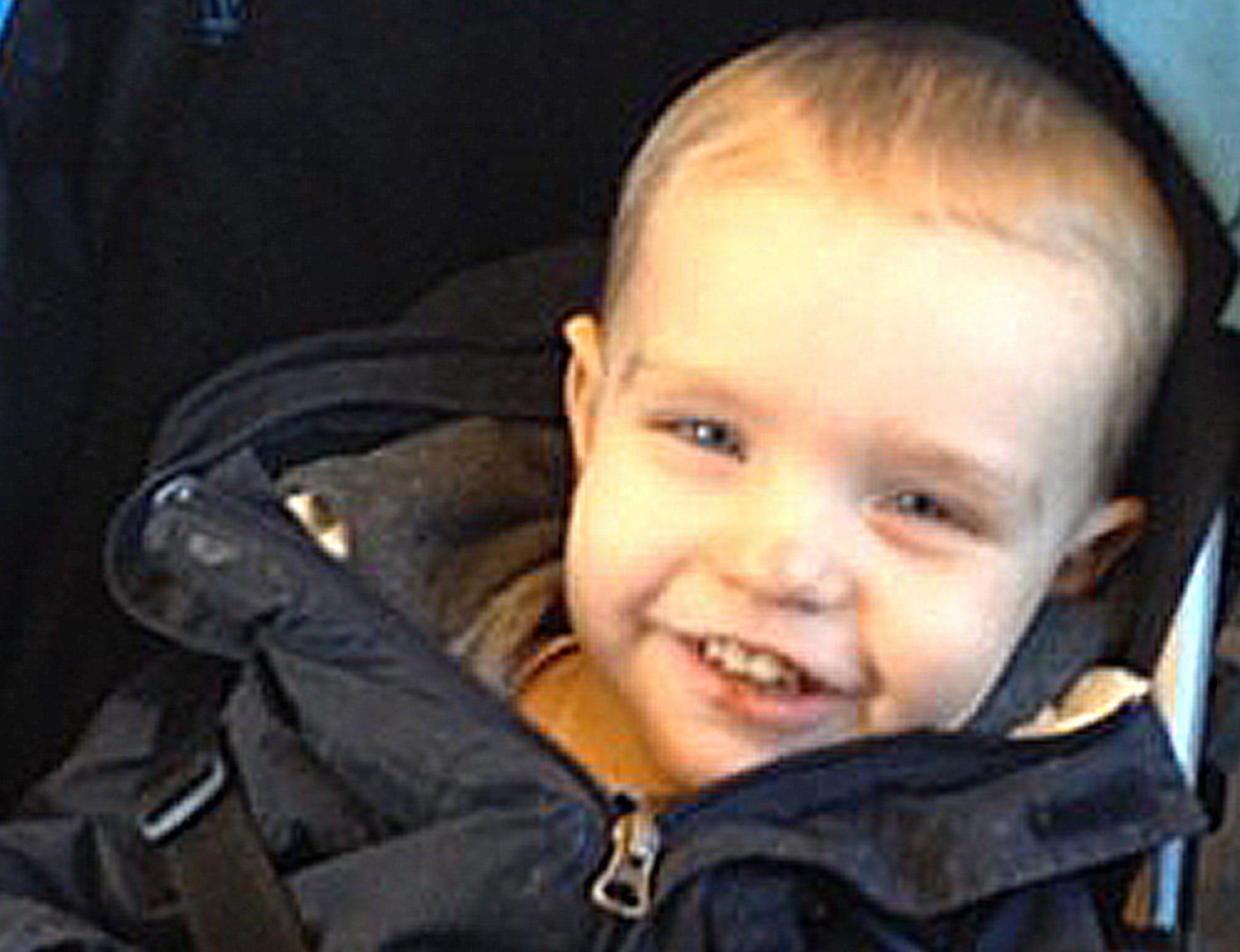Murdered toddler Liam Fee’s social worker was thrown out of the profession after a care watchdog panel said her “serious misconduct” amounted to neglect.
Lesley Bate, who was in charge of Liam’s case before his case “dropped off the radar” ahead of his death, was found guilty of 12 charges of misconduct relating to 15 children.
On Tuesday, a Scottish Social Services Council conduct sub-committee removed the 60-year-old from the social work register, but said “systemic failures” at Fife Council had played a part in the “pattern of misconduct that developed”.
The committee also hit out at other social workers, including Bate’s boss in the Fife Council child protection team, Karen Pedder, branding them “defensive” and “evasive” when they gave evidence.
They were said to be “less reliable than might reasonably have been expected” during the hearing.
Fife Council said the findings of the sub-committee “do not reflect our current practice or the high standard of professionalism we expect from staff”.
In a lengthy, damning, judgement given on the seventh day of the hearing, sub-commitee convenor Catherine Duthie said Bate had left Liam Fee – referred to only as FF in SSSC documents – at “actual or potential risk of harm”.
Directly addressing the Fee case, the sub-committee found Bate had failed to follow up with Liam’s health visitor after a referral was made to social workers on January 15 2013 regarding bruising to his face, or to record any such follow up.
Bate also failed to follow up with Liam’s childminder Heather Farmer after receiving a report of concern that Liam had a sore neck, to consider if an “Initial Referral Discussion” was required regarding the case and to fail to record any follow up.
The sub-committee said Bate “failed to take necessary steps to minimise actual or potential risk of harm, failed to maintain clear and accurate records and failed to meet relevant standards of practice.”
The hearing earlier heard from a string of Bate’s colleagues who described the child protection team as “split” by internal friction, with staff “more interested in childish games” than acting professionally.
In relation to Liam’s case, the official who investigated Bate’s conduct said she failed to follow up on the case or make notes relating to it on council computer systems despite two referrals being made in a matter of weeks.
The hearing was told how Liam’s mother, referred to as RT at the hearing, had fled an abusive relationship in Newcastle to settle with Nyomi Fee in Thornton, Fife.
Miss Burke said the case had been allocated to Lesley Bate after he had been referred to the department by the childminder on January 15, 2013, with unexplained bruises.
Liam presented as “unsteady on his feet and with bruising on his back. He also had a black eye,” she said, which his mother claimed had happened when he fell while playing.
On another occasion, the childminder reported that FF had a “massive bruise” on his forehead and bruising on both legs.
The child’s mother had said he had fallen out of his cot and she had found him asleep on the floor in the morning. The childminder had raised concerns about whether the child had been knocked unconscious, Miss Burke stated.
At the time of her initial joint investigation with a police officer into the family’s circumstances, Miss Bate had noted that during their home visit, they found the mum’s account to be “plausible” and recommended that a health visitor at school should be contacted.
However there was to be no further role undertaken by the social work department, the note said.
Miss Bate’s manager, Karen Pedder – who gave evidence at the Fee murder trial that the tot had “fallen off the radar of social work” – had instructed her to speak to the childminder again to gain some information and to discuss with her senior manager whether referral to the department was required.
However, there was no note of any update on that, Miss Burke discovered.
Committee convenor Catherine Duthie said that her misconduct “could have been addressed more effectively” by the council.
She said: “That is not to say that more effective management intervention would have prevented all of your misconduct but it may have prevented the pattern of misconduct that developed.
“However, whilst systemic failures may have been a factor in the frequency and the duration of your misconduct it does not relieve you of your repsonsiblities as a social worker and does not excuse your misconduct.”
She added: “Your failures repeatedly placed very vulnerable service users at risk of harm, including physical and emotional harm.
“The sub-committee is in no doubt that your misconduct is of such a serious nature that it is likely to damage public confidence in social services. The damage may be considerable.
“The sub-committee is persuaded that this behaviour occurred with such frequency that it amounts to the neglect of service users.
“Whilst you may not have intended to harm service users your actions exposed them to unnecessary harm.”
A spokeswoman for Fife Council said: “We welcome the findings of the tribunal.
“While we cannot discuss the details of current or former employees, we would reassure that the practice highlighted in this case is historic in nature and was dealt with robustly at the time.
“The case was first reported by the council, to the SSSC, over three years ago and this week’s hearing is the conclusion of that referral.
“This case does not reflect our current practice or the high standard of professionalism which we expect and receive from our social work staff.
“Fife Council’s Children’s Services were subject to a joint inspection earlier this year by the Care Inspectorate, Education Scotland, Healthcare Improvement Scotland and HMI of Constabulary for Scotland, who evaluated services in Fife very positively.
“It remains extremely important that we continuously scrutinise the work that we do.
“Significant case reviews, such as that underway into the death of Liam Fee, contribute to this scrutiny and we look forward to promoting any learning from this review as widely as possible, to help improve practice across agencies.”










